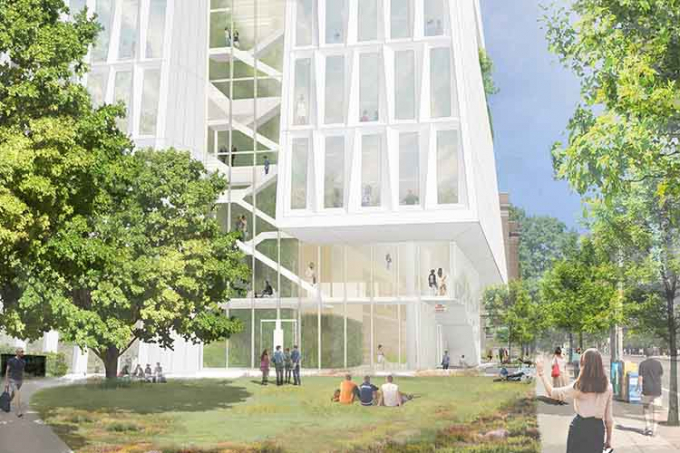University of Toronto receives $100 million for AI innovation centre

The University of Toronto (UofT) today announced that it has received $100 million in funding to help build its innovation centre housing its artificial intelligence research.
“I hope this centre will be the place that deep learning disrupts the humanities.” Geoffrey Hinton
The investment made by Canadian entrepreneurs Gerald Schwartz and Heather Reisman was called unprecedented by UofT president, Meric Gertler, who noted this is the largest single investment in the university since its creation, as well as the largest investment ever in the Canadian innovation sector overall.
The $100 million investment will help in the building of a 750,000 square foot complex that will house the university’s AI scientists and biomedical researchers, as well as its entrepreneurship network and student and faculty-led startups. Once it opens, the building will also become the new home for the Vector Institute.
Part of the funding will also go towards launching a new institute focused on connecting the intersections between technology and society – The Schwartz Reisman Institute for Technology and Society. The institute will look to address the ethical and societal implications of AI and other emerging technologies. It will offer a space for “cross-disciplinary research and collaboration” between the university’s programs including sciences, humanities, and social sciences.
Reisman said her and Schwartz decision to make the investment stemmed from reading about UofT’s new innovation centre that was originally announced in July. She noted the opportunity and excitement they saw in creating a hub for AI and emerging technologies that could attract global talent.

A rendering of phase one of the innovation centre – image courtesy University of Toronto
On hand for the announcement was Minister of Innovation, Science and Economic Development, Navdeep Bains, Torontno Mayor John Tory as well as Geoffrey Hinton.
Both Bains and Tory expressed their appreciation for Reisman and Schwartz’s donation in helping further solidify the city’s place in the AI sector. Bains noted the federal government’s goal of creating “a nation of innovators,” but noted that in order to reach that goal the government needs support.
“It isn’t just government that needs to do this, we need businesses to stand up, and academic institutions to stand up to acknowledge this and acknowledge AI,” said Bains.
He stated that this investment in the university’s new centre reflects the potential of AI and emerging technologies as Canadian companies now start to commercialize their products and called the centre a hub for helping with that growth.
Hinton, chief scientific advisor to Vector Institute, engineering fellow at Google, and professor of computer science at UofT, captivated the room when he took the podium. He said that the centre will make it easier to attract interntional leaders in AI and cement Toronto and the university as the AI hub that it is.
“I hope this centre will be the place that deep learning disrupts the humanities,” Hinton stated, noting that he believes deep learning and AI will radically change humanity. He applauded the centre, as well as the Institute for Technology and Society for putting a focus on developing emerging technologies in conjunction with how they will affect society in years to come.
Artificial intelligence has been a big draw for international companies and investors looking to jump on Canada’s leadership in the industry. UofT is often noted as the birthplace of AI, where Hinton made his discoveries in deep learning, neural networks that led to modern-day AI. This has made the City of Toronto a growing tech hub for AI, having been proclaimed Silicon Valley North, the Toronto-Waterloo corridor is positioned as the frontman in the AI race.
In August, LG announced a five-year partnership with the university to launch an AI research lab. Last year also saw AI investments in Toronto from Samsung, which opened its own research centre. In April of last year the University of Waterloo also opened the Waterloo Artificial Intelligence Institute, focusing on foundational AI research, as well as operational AI and helping develop scaleable tech solutions.
